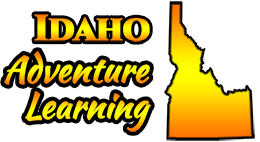1 Million in Treasure Valley by 2040?
Submitted by Brian Zuber on Wed, 2016-07-13 00:00
In the media, you might have heard the prediction that the Treasure Valley (Boise and surrounding cities) will reach 1 million people by the year 2040. Today, we participated in a presentation from a city planner who explained that those types of predictions are based on flawed data. Turns out, we put a lot less research effort into understanding human systems, including demographics, than we do in the natural sciences (geology, hydrology, biology, etc). We make major planning and infrastructure decisions on the best data we have, but the science of urban planning is truly in its infancy and the data is unfortunately flawed. The final takeaway is that we really don't have a good idea of how many people are here today, how will our population grow, and what will the demographic details of today's and tomorrow's populations be? It's kinda scary!

Comments
Predictions
Hearing Jaap speak last year was fascinating because of the perspective he brought toward population dynamics and how difficult it is to truly make an accurate prediction because there are too many variables in play. What is interesting to me is to watch the rapid expansion of what used to be farmland just 5 years ago that is now being developed for housing or convenience store locations. I assume that you heard from climate scientists today and how using data from the last 30+ years were able to extrapolate potential climates 10-50+ years out. It doesn't paint a pretty picture for a region that is categorized as a desert steppe environment, especially for an population that is expected to grow by at least 1/3 in the next two decades.
Climate
We haven't had the opportunity to meet with any climate scientists this week, but I am roughly familiar with the many ways we can infer climatic conditions before written records started being kept. It truly is fascinating stuff, for sure. The comparison of how much we DO know about climate and other natural science topics compared to how little we DON'T know about our own human socio-cultural systems is a bit of a wake-up call. We have very solid data, models, and predictions about how our climate is changing for the worse (of course, with much we don't know yet), but how to convince the societies around the world to change their behaviors to mitigate and adapt is going to be the true challenge of our times.
STEM? We need more social scientists!!!